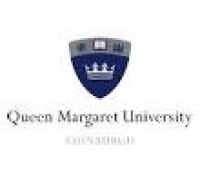






A diagnostic radiographer undertakes imaging to enable clinicians to make diagnosis of trauma and disease. Imaging covers all areas of the human anatomy and utilises a wide range of imaging modalities. This course will equip you with the necessary skills to apply for registration with the Health and Care Professions Council, to enable you to work in the health care sector as a diagnostic radiographer. As a diagnostic radiographer, you would be working largely with imaging technology, however there are many personal skills that you require for the profession. Working with patients and their families and with other healthcare professionals, you will require good interpersonal skills and you need to be caring and sympathetic towards individuals circumstances. Great attention to detail is required and you need to be able to think quickly and make decisions independently, reacting to an ever-changing work environment. You must be able to work within a team, but also individually, and you should be prepared to be flexible in your work patterns as the service is provided on a 24 hour basis. You will study a range of modules each year. Year One is designed as a foundation to introduce you to the concepts of healthcare and science-based technologies. The content is mostly classroom-based, but you will also carry out a short clinical practice placement. In Years Two, Three and Four, you will take increasing responsibility for your own learning. You will study further modules and go on more clinical placements. You will spend 17 weeks within the University and the other 13 weeks in the clinical environment in each year. We have implemented an Interprofessional Education (IPE) focus within all of our undergraduate healthcare courses to help produce graduates who are confident in their own professional identity but with additional skills that will allow them to work as effective team members. The IPE component will develop your mutual understanding of roles, expertise and values of other team members; skills and strategies in working in teams; problem solving, team decision-making skills; role flexibility; and ability to learn from others.
| Number | Duration |
|---|---|
| 4 | year |
Most graduates begin working as general radiographers. However, with experience, opportunities exist for specialisation in varied aspects of diagnostic radiography for example, ultrasound, computerised tomography (CT), magnetic resonance imaging (MRI), radionuclide imaging and mammography.